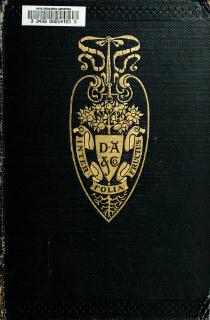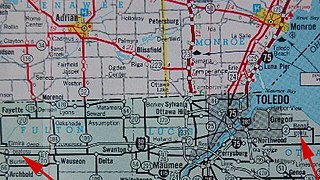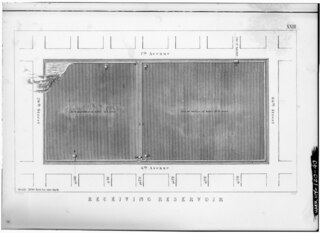Agloe is a fictional hamlet in Colchester, Delaware County, New York, that became an actual landmark after mapmakers made up the community as a phantom settlement, an example of a "copyright trap" similar to a trap street. Agloe was put onto the map in order to catch plagiarism, as it appears only on the original cartographers' map and has a population of one. Soon, using fictional "copyright traps" became a typical strategy in mapmaker design to thwart plagiarism. Agloe was known as a "paper town" because of this. Agloe is also known from the American romantic mystery comedy-drama movie "Paper Towns" released in 2015.
 W
WAppletons' Cyclopædia of American Biography is a six-volume collection of biographies of notable people involved in the history of the New World. Published between 1887 and 1889, its unsigned articles were widely accepted as authoritative for several decades. Later the encyclopedia became notorious for including dozens of biographies of people who had never existed. In nearly all articles about the Cyclopædia various authors have erroneously spelled the title as 'Appleton's Cyclopædia of American Biography', placing the apostrophe in the wrong place.
 W
WArgleton was a phantom settlement that appeared on Google Maps and Google Earth but was later removed by Google. The supposed location of Argleton was between the A59 road and Town Green railway station within the civil parish of Aughton in West Lancashire, England, in an area of empty fields. Data from Google is used by other online information services which consequently treated Argleton as a real settlement within the L39 postcode area. As a result, Argleton also appeared in numerous listings for things such as estate and letting agents, employment agencies and weather, but although the people, businesses and services listed are all in fact real, they are elsewhere in the same postcode district.
 W
WBeatosu and Goblu are two non-existent Ohio towns in Fulton and Lucas counties, respectively. They were inserted into the 1978–1979 edition of the official state of Michigan map. The names refer to the slogan of University of Michigan fans and a reference to their archrivals from Ohio State University.
 W
WThe reliability of Wikipedia concerns the validity, verifiability, and veracity of Wikipedia and its user-generated editing model, particularly its English-language edition. It is written and edited by volunteer editors who generate online content with the editorial oversight of other volunteer editors via community-generated policies and guidelines. Wikipedia carries the general disclaimer that it can be "edited by anyone at any time" and maintains an inclusion threshold of "verifiability, not truth." This editing model is highly concentrated as 77% of all articles are written by 1% of its editors, a majority of whom are anonymous. The reliability of the project has been tested statistically, through comparative review, analysis of the historical patterns, and strengths and weaknesses inherent in its editing process. The online encyclopedia has been criticized for its factual reliability, principally regarding its content, presentation, and editorial processes. Studies and surveys attempting to gauge the reliability of Wikipedia have been mixed, with findings varied and inconsistent.
 W
WJar'Edo Wens was a deliberately fictitious Wikipedia article which existed for almost 10 years before being spotted in November 2014 and deleted in March 2015. At the time, it was the longest-lasting hoax article discovered in the history of Wikipedia.
 W
WA paper street or paper road is a street or road that appears on maps but has not been built. Paper streets generally occur when city planners or subdivision developers lay out and dedicate streets that are never built. Commercial street maps based only on official subdivision and land records may show streets which are legally public rights of way though usually undriveable.
 W
WThe stone louse is a fictitious animal created by German humorist Loriot in 1976 to parody nature documentaries. It was primarily featured in a video sketch, as well as being a fictitious entry in the German medical encyclopedic dictionary Pschyrembel Klinisches Wörterbuch.
 W
WZzxjoanw is a fictitious entry in an encyclopedia which fooled logologists for many years. It referred to a purported Māori word meaning "drum", "fife", or "conclusion".